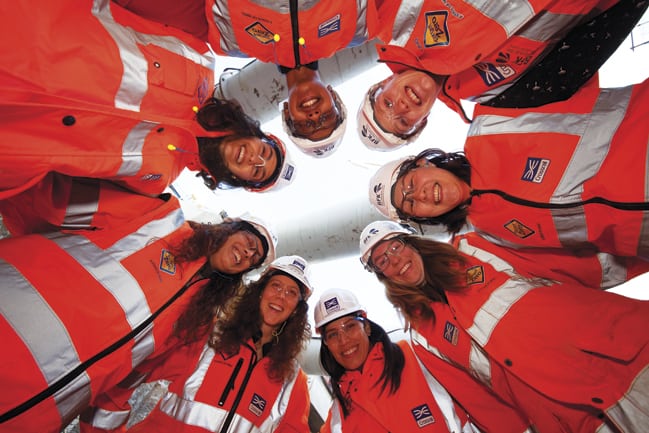Indeed, according to the Institution of Engineering’s (IET) latest skills report, the percentage of women in technical and engineering roles currently stands at around 9 per cent, making the UK’s industrial workforce one of the least diverse in Europe. The Engineer’s 2015 salary survey - which was published earlier this summer - painted an ever more concerning picture, with women making up just 5.5 per cent of our respondents.
Whenever we write about this issue we’re met with a predictable response from a small but vocal minority: stop banging the politically correct drum, if women don’t want to be engineers then don’t make them.

But as we’ve long argued, addressing the gender divide is about far more than some fluffy notion of corporate responsibility. Major engineering organisations across the board recognise that not only is diversity at the heart of the most successful and innovative organisations, but with a skills shortage looming in many key sectors, it’s economic folly to ignore the skills of half of the population. What’s more, with proportions of female engineers much higher in other parts of the world, and school age girls regularly outperforming boys in scientific subjects, there’s zero evidence that women are somehow less cut-out for engineering.
In our latest extended report on the issue we take a look at some of the reasons for this gender imbalance, and offer some suggestions on how industry might work more effectively to encourage more women into the profession. Unsurprisingly, a major priority in the long term is shifting the apparently widely held perception amongst school-age girls that engineering is a male profession.
One particularly interesting point is raised by Naomi Climer, the first female president of the IET who suggests that in its efforts to attract more women by identifying “female-friendly” areas of engineering, industry may have been slightly guilty of perpetuating an unhelpful gender-tinted view of industry. There’s been a huge - well-intentioned - effort to attract more women into industry by focussing on the opportunities in what might be termed non-traditional areas of engineering. But whilst it’s important that industry communicates the full and varied range of opportunities available in engineering, is there really any reason beyond social conditioning why female engineers should be better to suited to particular fields?
There are areas of hope. As previously reported, the civil sector scores highly in the diversity stakes, a fact that we were reminded of this week by the news that Bechtel - the delivery partner for London’s monumental Crossrail project has been given a Women in Science and Engineering (WISE) award in recognition of its efforts to promote diversity. Nearly 40 per cent of the company’s Crossrail engineers are female.
In its ongoing efforts to remove the obstacles to success, and ensure that everyone, regardless of gender, enjoys the same opportunites, industry would do well to look carefully at how the civil sector has so effectively bucked the trend.











Water Sector Talent Exodus Could Cripple The Sector
Maybe if things are essential for the running of a country and we want to pay a fair price we should be running these utilities on a not for profit...